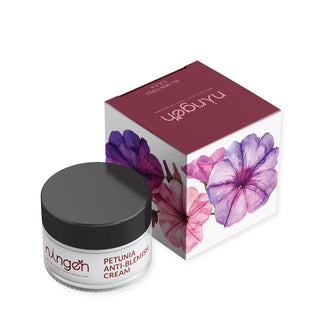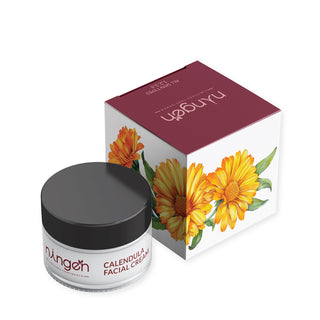TL;DR
Fine lines are early signs of aging driven by collagen loss, sun exposure, dehydration, and daily expressions. They usually appear in your late 20s but can be minimized. A consistent routine powered by retinol, vitamin C, hyaluronic acid, moisturization, and daily SPF helps smooth, protect, and slow visible aging. Prevention + disciplined skincare = sustained skin resilience.
Have you ever noticed those fine lines on your face? They're like nature's way of telling stories. But why do they show up, and how can we keep them at bay? Join us on a journey into the world of fine lines. We'll discuss fine lines on face, and what causes them, and discover simple tricks to keep your skin feeling younger and happy. Think of it as your skincare adventure, where we make understanding fine lines easy and prevention a breeze. Let's make skincare simple and fun!
What are fine lines?
Fine lines are subtle creases or wrinkles that appear on the skin, often as a natural part of aging. These faint lines, smaller than wrinkles, emerge due to a combination of factors like reduced collagen and elastin, sun exposure, and facial expressions. They commonly occur around the eyes, mouth, and forehead. While fine lines signify life experiences and expressions, factors like skincare, hydration, and sun protection can help minimize their appearance, maintaining a smoother, healthier, & more youthful complexion. Embracing a healthy skincare routine can contribute to a radiant and age-defying skin journey.
Types of fine lines
Expression Lines:
Caused by repeated facial expressions like smiling or squinting, these lines appear around the eyes ( Crow’s feet ) and mouth ( laugh lines).
Gravity Folds:
As a result of the natural pull of gravity on the skin, these lines typically form on the cheeks and jawline.
Sleep Lines:
Developed due to sleeping positions, these lines are common on the side of the face and can become more apparent over time.
Dynamic Lines:
Caused by muscle movement, these lines are visible during facial expressions and may deepen with age.
Static Wrinkles:
Persist even when the face is at rest, often associated with collagen and elastin loss, appearing as fine lines or deeper wrinkles.
Forehead Lines:
Forehead lines are horizontal lines that run across your forehead caused by your frontalis muscle.
Neck Lines:
Neck lines, also known as "tech neck," can either look like deeper horizontal lines that wrap around like a choker or smaller, thinner, lighter lines that are more prevalent on the sides.
Understanding these types helps tailor skincare approaches to address specific concerns and maintain a smoother, more youthful complexion.

What causes fine lines?
Aging:
Natural aging leads to a decrease in collagen and elastin, proteins vital for skin elasticity, causing the formation of fine lines.
Sun Exposure:
UV rays accelerate skin aging, breaking down collagen and elastin fibers and contributing to the development of fine lines.
Facial Expressions:
Repetitive movements like smiling, squinting, or frowning create lines over time, known as expression lines.
Dehydration:
Lack of hydration can make the skin appear drier and accentuate fine lines, emphasizing their visibility.
Genetics:
Inherited factors play a role in how the skin ages, including the likelihood and pattern of fine-line development.
Environmental Factors:
Exposure to pollution and harsh weather conditions can contribute to premature aging and the appearance of fine lines.
Understanding these causes aids in adopting preventive measures and effective skincare to minimize the impact of fine lines on the skin.
At What Age Do Fine Lines Appear?
It is a question often asked in the context of skincare and aging. The appearance of fine lines is influenced by various factors, and it's not a one-size-fits-all scenario. Generally, fine lines begin to emerge in adulthood, usually in the late twenties to early thirties. The primary reasons include a natural decline in collagen and elastin production, exposure to environmental elements like the sun, and the impact of lifestyle factors such as diet, hydration, and skincare practices. Genetics also plays a role, as some individuals may experience fine lines earlier or later in life based on family history.
How to reverse fine lines?
To help reverse fine lines, consider these skincare tips:
Moisturize: Hydrated skin appears plumper, reducing the visibility of fine lines. Use a moisturizer with hyaluronic acid for added hydration.
Retinoids: Incorporate products with retinoids, like retinol, into your routine. They stimulate collagen production and promote cell turnover, diminishing fine lines.
Sun Protection: UV rays accelerate skin aging. Apply a broad-spectrum sunscreen daily to protect your skin and prevent further damage.
Antioxidants: Use products containing antioxidants (e.g., vitamin C) to neutralize free radicals, reducing oxidative stress and fine-line formation.
Stay Hydrated: Drink plenty of water to maintain skin hydration and support overall skin health.
Note: Read here to learn more about how to hydrate your skin overnight.
Healthy Lifestyle: Maintain a balanced diet, practice face yoga, exercise, get enough sleep, and manage stress to promote skin rejuvenation.
Professional Treatments: Consult a dermatologist for options like chemical peels, laser therapy, or microdermabrasion for more advanced fine-line reduction.
Why Retinol is considered one of the most effective anti-aging?
Here are why Retinol is one of the most effective anti-aging -
Stimulates Collagen Production:
Retinol encourages the production of collagen, a protein essential for maintaining skin elasticity and firmness. Increased collagen helps reduce the appearance of wrinkles and fine lines.
Accelerates Cell Turnover:
It promotes faster cell turnover, helping shed old, damaged skin cells and revealing newer, healthier skin. This process contributes to a more youthful and radiant complexion.
Addresses Hyperpigmentation:
Retinol helps fade dark spots and hyperpigmentation by inhibiting melanin production, leading to a more even skin tone.
Minimizes Pores:
By promoting cell turnover, retinol helps prevent the buildup of dead skin cells, reducing the appearance of enlarged pores.
Improves Skin Texture:
Regular use of retinol can result in smoother skin texture, making it an effective solution for addressing rough or uneven skin.
Antioxidant Properties:
Retinol acts as an antioxidant, neutralizing free radicals that contribute to premature aging and skin damage.
Anti-aging skincare routine
Discover the secrets to timeless skin with our easy anti-aging skincare routine. Follow this daily skin care and unveil a radiant and youthful complexion effortlessly.
- Cleansing
Effective cleansing is crucial for removing dirt, grime, makeup, and various products applied to the skin during the day. When the skin is congested with bacteria, sebum, and dust, the efficacy of other skincare products is compromised, as they are unable to penetrate deeply and function optimally.
Aging slows down the skin's cell renewal, leading to dullness and sagging. Incorporating exfoliants is crucial to address this. Whether through face scrubs or chemical masks, exfoliants effectively remove dead cells, making room for new, vibrant skin. While body scrubs are suitable, it's essential to avoid using them on the face.
- Anti-aging Serums
Face serums boast a more concentrated blend of active ingredients compared to moisturizers or gels. Noteworthy anti-aging components include retinoids (a derivative of vitamin A) and vitamin C. These ingredients effectively boost collagen production and carry antioxidants, combating free radical damage to decelerate the aging process.
Dehydrated skin is susceptible to more wrinkles and lines on the forehead due to age-related changes in sebum production, causing increased acne and dryness. Using a nourishing body lotion or moisturizer creates a protective barrier against harsh weather, combating seasonal dryness and maintaining skin hydration. Choose a moisturizer with water-binding humectants like glycerin, aloe vera, and hyaluronic acid for optimal results.
- Sunscreen
A reliable method to shield your skin from UV damage, a potential contributor to wrinkles and fine lines, is by using SPF. The sun emits various types of radiation, with UVA and UVB rays being culprits in causing photoaging and blemishes. These harmful rays can impact your skin by breaking down collagen and disrupting elastin, leading to issues like uneven pigmentation, thinner skin, and fine lines. It's recommended to wear sun-protective clothing and sunglasses to minimize exposure to this radiation.
Final Insights
I hope you found this article on fine lines on the face helpful. As we age, fine lines on the face and neck are unavoidable, but using appropriate topical creams for the face or hands can reduce their visibility. Opting for skincare products that are safe, mild, and free from toxins, crafted with the goodness of natural ingredients, is always beneficial.
Let's hear from you! What's your take on fine lines and their causes & reversal? Let us know in the comments.
Frequently Asked Questions
Q1: Can you reverse fine lines on your face?
Answer : While you can't completely reverse fine lines, you can minimize their appearance through effective skincare. Incorporate retinols, antioxidants, and hyaluronic acid into your routine. These ingredients boost collagen, hydrate, and promote cell turnover, reducing the visibility of fine lines. Consistency and sun protection are key for optimal results.
Q2: What is the reason for fine lines on the face?
Answer: Fine lines on the face often result from the natural aging process. As we age, the skin produces less collagen and elastin, leading to reduced skin elasticity and the formation of fine lines. Other factors, such as sun exposure, dehydration, and facial expressions, can also contribute to their development.
Q3: Are fine lines permanent?
Answer: Fine lines are typically not permanent and can be minimized with proper skincare. Ingredients like retinoids, antioxidants, and hyaluronic acid can help reduce their appearance by promoting collagen production, hydrating the skin, and encouraging cell turnover. Consistent skincare and sun protection play crucial roles in preventing and addressing fine lines.
Q4: How can I reverse the fine lines on my face?
Answer: To reverse or manage fine lines, consider a skincare routine with ingredients like retinols, antioxidants, and hyaluronic acid. These promote collagen production, hydrate the skin, and encourage cell turnover. Consistency is key, along with sun protection and a healthy lifestyle, to address and prevent fine lines effectively.
Q5: What is the difference between fine lines and wrinkles?
Answer: Fine lines and wrinkles may both result from aging and lifestyle, but they differ in depth and visibility. Fine lines are shallow and may appear as subtle creases, while wrinkles are deeper and more pronounced. Fine lines are often the early signs of aging, and preventive skincare can help minimize their development into deeper wrinkles.
Sources & references-
British Association of Dermatologists
https://www.bad.org.uk/patients/skin-ageing/
DermNet NZ
https://dermnetnz.org/topics/photoageing/
American Academy of Dermatology (AAD)










sathish
Thanks for sharing valuable information